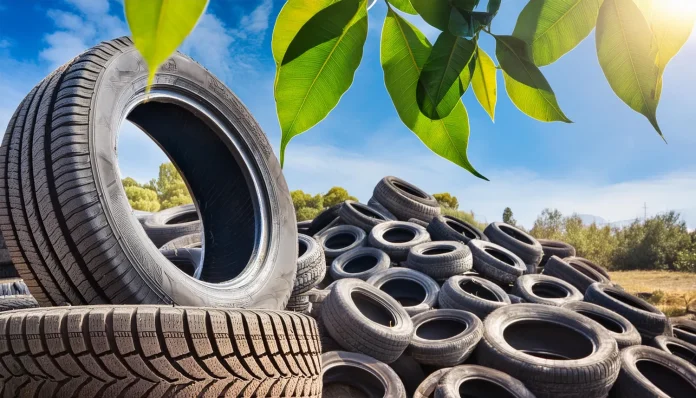Tyres are an essential component of vehicles, giving the required grip and stability to ensure safe driving. But, they also have an impact on the environment when they are at the expiration date. With the millions of tyres that are removed each year, inadvertent disposal could lead to serious environmental consequences. This article we’ll examine the environmental impacts of a proper disposal process for tyres and highlight the importance of implementing sustainable practices to reduce the impacts.
The Issue of Tire Waste
The amount of tyres that are disposed of is staggering. In a lot of countries, old tires are disposed of in landfills, making huge piles that are not only ugly but also dangerous. Tyres cannot be biodegradable which means they cannot be broken down naturally with time. This can cause persistent environmental problems, which include contamination of water and soil. Furthermore, tyre flames that can be difficult or impossible to put out release harmful chemical compounds into the air, creating air pollution and posing health hazards to the communities around them.
Incorrect disposal’s effects on the environment
Incorrect disposal of tyres can cause a variety of environmental dangers. If tyres are disposed of in illegal dump sites or landfills which are the breeding ground for pests like mosquitoes that could transmit disease. Furthermore, the chemical residues emitted from tyres, such as hydrocarbons and heavy metals could contaminate groundwater and soil, which affects animal and plant life. These contaminants may enter the food chain and end up affecting human health.
Benefits of Tyre Disposal Properly
Proper tyre disposal offers significant environmental benefits. Recycling tyres can reduce the amount of waste that is disposed into landfills, and reduce the dangers. Tyres can be processed and reused to be used in a variety of ways like building materials, asphalt rubberized and playground surfaces. This is not just a way to conserve natural resources but also cuts down on the requirement for raw materials, thus reducing the environmental footprint overall.
Programs for Recycling’s Role
Recycling programs play an essential part in tackling tyre waste efficiently. They collect and process used tyres, making sure that they are recycled in a way that is environmentally sustainable. Participating in recycling programs for both businesses and individuals can aid in reducing impacts on the environment caused by the disposal of tyres. Furthermore, government and other organizations could implement rules and incentives to encourage responsible disposal practices and foster a sustainability culture.
New Developments in Tire Recycling
Technology advancements have resulted in new methods of recycling tyres. For example, pyrolysis can be described as a method of heating tyres without the use of oxygen, resulting in the production of gas, oil and charcoal. These byproducts can be utilized as fuel alternatives or raw materials for various industries. Another process, devulcanization is a process that breaks down the rubber inside tyres, resulting in innovative rubber-based products. These new methods not only help reduce tyre waste but also provide economic benefits by enabling the creation of new industries and products.
The Significance of Consumer Knowledge
Awareness of the consumer is essential to encourage proper disposal of tyres. A lot of people are unaware of the negative environmental impact of discarded tyres as well as the recycling options available. Informing the public about the necessity of recycling and offering easy disposal facilities can help inspire more responsible behavior. In addition, consumers can make educated choices by buying tires from companies that are committed to sustainable practices and provide recycling programs.
The Function of Services in Tire Replacement
Services like jump-starting automobile assistance or mobile vehicle battery replacement could also aid in the promotion of the proper disposal of tyres. They often come across vehicles that have worn-out tyres and can inform their customers about the importance of properly disposing of. By integrating recycling information for tyres into their processes they can raise awareness and support conservation efforts for the environment.
Worldwide Initiatives for Tire Management
All over the world, countries are making efforts to reduce the environmental impacts of the disposal of tyres. In some areas extended producer liability (EPR) programs demand that tyre producers manage what they do with their products. The programs make sure that the tyres get recycled and collected, thereby making landfills less prone to pollution and minimizing environmental damage. International cooperation and sharing of information will further strengthen efforts to improve the sustainability of managing tyres.
Conclusion
Proper disposal of tyres is essential to protect the environment as well as helping to promote sustainability. By recycling tyres, and taking part in sustainable disposal practices, we can dramatically decrease the impact on our environmental of waste of tyres. Technology advancements in recycling as well as increased awareness among consumers, and support services such as jump-start car service and mobile battery replacement for cars all aid in this endeavor. To learn more about sustainable tyre management, visit back2roadtyres.com.au and explore how you can make a difference.





